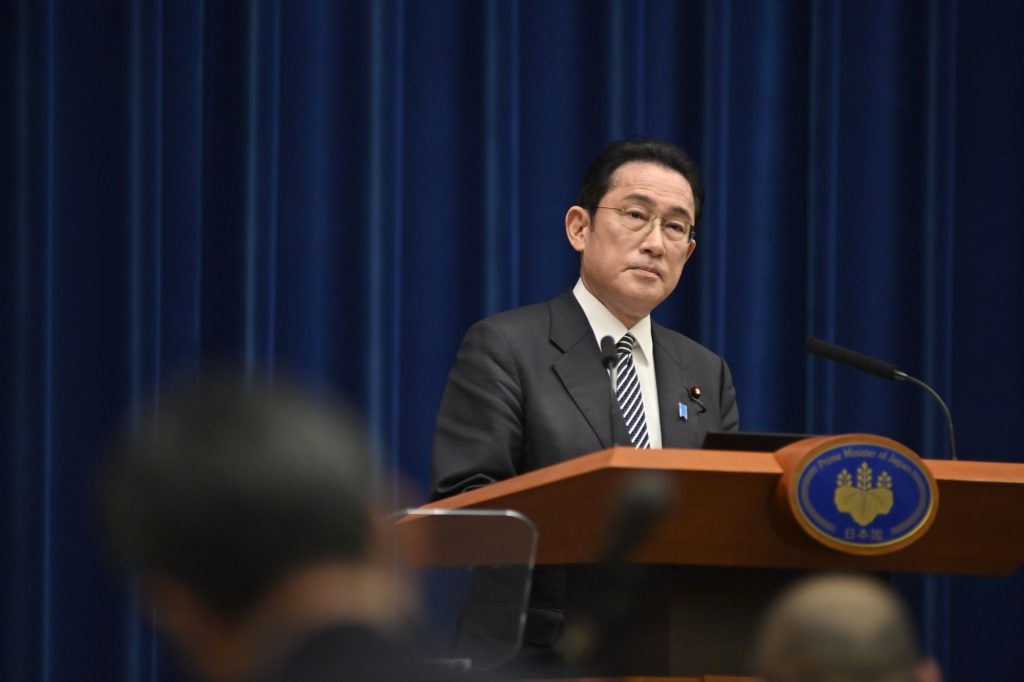(Bloomberg) — Japanese Prime Minister Fumio Kishida is dispatching his foreign minister to attend the inauguration next week of South Korea’s new president, who had been seeking the premier’s attendance as a symbol of putting troubled ties on a more stable course.
Kishida will send Foreign Minister Yoshimasa Hayashi to attend the swearing in ceremony for South Korean President-elect Yoon Suk Yeol, Japan’s Asahi newspaper and other media reported Tuesday, citing unnamed government sources. Yoon’s office did not immediately respond to requests for comments, adding it does not comment on individual reports.
Jin Chang-soo, an expert on Japan at South Korea’s state-funded Sejong Institute think tank, said that although Yoon’s camp would have rather have Kishida attend, it would still consider Hayashi’s visit as a sign of Tokyo’s will to set a new course in relations.
“Hayashi’s talks with the new South Korean top officials may be the beginning of the two countries mending ties,” Jin said.
Soon after taking office, Yoon will be meeting U.S. President Joe Biden, who will be on a trip to the region from May 20-24 that also takes him to Japan for talks with Kishida. Warming ties between the two U.S. allies would be a welcome development for Biden as he seeks their cooperation to counter security threats posed by China and North Korea, while securing supply chains for key goods such as semiconductors free from interference from Beijing.
Yoon, a conservative, has signaled he wants to take a hawkish diplomatic course, which would also be in line with some of the security priorities of Kishida’s conservative government. The new leadership in Seoul may offer a chance to inch back relations to something more like normal, with the war in Ukraine providing a reminder to both countries of their reliance on their mutual ally amid growing regional threats.
It had been the tradition for Japanese premiers to attend South Korean presidential inaugurations until political acrimony led Japan’s premier to skip the inauguration of former President Park Geun-hye in 2013.
Relations had deteriorated to their worst state in decades under Yoon’s predecessor, President Moon Jae-in, due to disputes related to Japan’s 1910-1945 colonial rule over the Korean Peninsula. In a bid to break the ice, Yoon dispatched a delegation of lawmakers and policy experts to Japan in late April that met with Kishida and sought to have him attend the ceremony.
In a reminder of the simmering tensions, a district court in South Korea last week ordered the sale of patent held by Mitsubishi Heavy Industries Ltd. to pay compensation to a Korean woman in a case related to conscripted workers at factories during the colonial period, Kyodo News reported Tuesday, citing a lawyer for the plaintiff.
A series of decisions by South Korean courts under Moon ordering compensation for Koreans forced to work at Japanese mines and factories during the colonial period — and women trafficked in Japanese military brothels — led to strains in security cooperation and trade ties between the two countries that host the bulk of U.S. troops in the region.
Japan has said all matters of compensation have been settled decades ago by a treaty between the two while Moon’s government argues Tokyo hasn’t done enough to properly atone. Due to procedural matters in these cases, any decision by a court could take months, if not years, to actually be implemented.
Yoon’s camp has indicated it may seek a two-track approach with Japan — trying to improve cooperation on security, while pressing Tokyo to show what Seoul sees as greater accountability for widespread harm to millions of Koreans before and during World War II.
More stories like this are available on bloomberg.com
©2022 Bloomberg L.P.











